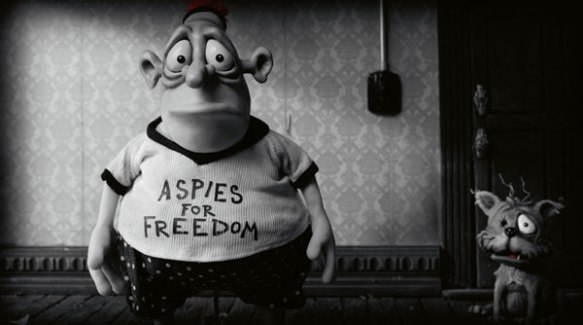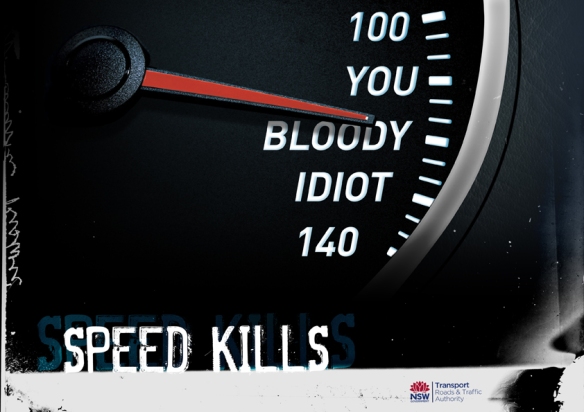Within the past two years, around the same time I realized I had Asperger’s, I had a parallel realization. Actually, it was so sudden, I think it fairly qualifies as an epiphany: I often mimicked the speech and related behavior of others.
It was unconscious and not apparent to me at the time. But now, looking back at many years of social interaction, I apprehended that if I was talking to a person who spoke slowly, I would often speak slowly — even though words usually leave my mouth like bullets from a machine gun. Or, if he or she said “um,” “you know” or other filter words a lot, so would I. If the person had a strange cadence, pausing every several words, I’d do that too. Same for people who cut sentences short, left the last word trailing off, who spoke with a rat-a-tat delivery, or who over-annunciated, contorting their lips into dramatic postures. I even added regional accents to my speech sometimes, to match the speakers’. Whatever the person’s delivery, inflection and cadences, I would often adopt them as my own, for the duration of the encounter.
And it wasn’t just speech, the imitation included body language and other speech-related behavior too. Of course, I didn’t, or couldn’t, engage in this behavior in group settings (who would I focus on?); it had to be one-on-one. And even then, I didn’t always do it. But I did it a lot.
I can’t pinpoint the exact day I discovered it, but I remember what I thought: I’m a chameleon. The realization was kinda cool but mostly freaky and troubling. If it was true, if I only echoed the speech and behavior of others, how could I know what my “true” conversational style was? Did I even have one? (As a side note, I’ve been successful in debate and other forms of public speaking, but in those arenas, there are effectively rules about how to speak — annunciating words clearly, using hand gestures a certain way, etc.)
The good news was that because my imitation only happened one-on-one, I figured I should be able to discover my “true” style by examining past group interactions. I didn’t participate much but I did participate, at least minimally. So I thought about those interactions, and concluded I did have my own style, it just was often hidden. If I had to summarize it, I’d say I spoke quickly, tended to stop briefly at the end of clauses, often trailed off at the end of sentences, because I assumed others knew where I was headed logically, or what I meant. And I naturally used “big” words (as others put it). I certainly had the classic Aspie characteristics of talking too much, too quickly, passionately and loudly when the topic was dear to my heart.
I also researched the topic of mimicry/imitation and found some references, such as here and here. And I learned there’s even a term for it, at least when used in a certain narrow context, echolalia. The few sources I found seemed to suggest it was more common in women. A female Aspie even did a detailed survey of women to see how common the trait was.
These sources also indicated the mimicry was not limited to one-one-one interactions but was more general in nature; Aspies often adopted the mannerisms of peers, family, friends, even people on TV. And here’s something I found really interesting: Aspies didn’t necessarily mimic people of the same gender. Sometimes, women imitated men or men imitated women. The survey I mentioned above found that 41.93% of female Aspies said they copied the behavior of both genders. And as Tony Atwood, one of the leading experts on Asperger’s, explained: “A boy with Asperger’s syndrome may notice how popular his sister is with her peers. He may also recognize that girls and women, especially his mother, are naturally socially intuitive; so to acquire social abilities, he starts to imitate girls.”
When I saw that last bit of information, I couldn’t help thinking that, maybe, the observation applied to me. (Oh no.) I never thought of myself as feminine, but on the other hand, I wouldn’t say I was an exemplar of masculinity either. I mean, I played lots of sports and did reasonably well, but I wasn’t one of those macho guys who punched other guys in the shoulder, uttered a curse word every third word, watched football and drank beer, and ogled or hit on any attractive woman who walked in the room. Maybe I had been picking up behavior cues from women, not realizing they were gender-specific.
Now, I know gender is largely a social construction, or many think so anyway, and I’m not saying there’s anything wrong with a guy engaging in what is typically considered “feminine” behavior. But in my case, I did it unknowingly, not as a deliberate choice. Now that I’m aware of my tendency to mimic, I can control it, decide what behaviors I want to copy, and which I don’t.
I should add that, as my psychologist later pointed out, everybody, even neurotypicals, engages in imitation to a certain degree. Ironically, it’s a form of empathy (ironic because Aspies are often said to lack that trait.) The difference with Aspies, as I understand the scholarly research, is the degree of imitation.
I still struggle with the question of what / who is my true self. I guess everyone does to a certain extent, but for me, and other Aspies I presume, the trouble is the lack of “rules.” There are no rules for how to behave when conversing with others — whether to curse (and how much), whether to talk a lot or a little, whether to tease others, how sensitive to be to others’ feelings, whether to make statements I suspect will be seen as inappropriate, what to talk about, who to talk to, when to engage in conversation, when to walk away, how friendly to be and to whom. These all involve choices, and for me, someone who doesn’t have an intuitive feel and likes to approach decisions rationally and deliberately, they are difficult to make.
One of the most profound things I’ve learned, although it sounds like a cliche, is that I should never behave a certain way just because others are. Of course, there are certain social norms that should be respected, like the criminal laws (although even there, you have to know what activities, like speeding, jaywalking and gambling, people routinely engage in, and society condones, legal prohibitions notwithstanding). But for the most part, behavior is a choice. And I suppose it’s liberating to realize, finally, that I get to decide who I am … even though it means I have many tough decisions to make.
For all your Aspies out there, male and female, do you think you mimic the behavior of others? And does it bother you?





